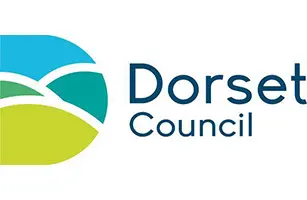
The Fundamentals of SEO
In the ever-expanding digital ecosystem, Search Engine Optimization (SEO) stands as a fundamental pillar for businesses aiming to thrive online. With the majority of online experiences beginning with a search engine query, mastering the art of SEO is paramount for enhancing visibility, driving organic traffic, and ultimately, achieving business success. In this guide, we’ll explore the foundational principles of SEO and how they can propel your website to the top of search engine results pages (SERPs).
Understanding SEO:
At its core, SEO is the process of optimizing your website to rank higher in organic search results. This involves a multitude of techniques aimed at enhancing both the quality and quantity of website traffic by improving its visibility to search engine users. Rather than relying on paid advertising, SEO focuses on organic strategies to attract users actively seeking information, products, or services related to your business.
Keyword Research:
Keyword research forms the bedrock of any successful SEO strategy. It involves identifying the search terms and phrases that your target audience is using to find products or information relevant to your business. By leveraging keyword research tools and analyzing search trends, businesses can uncover valuable insights into user intent, competition levels, and content opportunities, enabling them to tailor their content and optimization efforts accordingly.
On-Page Optimisation:
On-page optimization refers to the process of optimising individual web pages to improve their search engine rankings and drive organic traffic. This includes optimizing meta titles and descriptions, incorporating target keywords naturally within the content, optimizing heading tags (H1, H2, etc.), improving page load speed, and ensuring mobile responsiveness. By optimizing various on-page elements, businesses can enhance the relevance and authority of their website in the eyes of search engines, thereby improving their chances of ranking higher in SERPs.
Quality Content Creation:
High-quality, relevant content lies at the heart of any successful SEO strategy. Search engines prioritize content that is informative, engaging, and valuable to users. By creating content that addresses the needs, questions, and pain points of your target audience, businesses can attract organic traffic and establish authority within their niche. From blog posts and articles to videos and infographics, diverse and compelling content formats can help businesses connect with their audience and drive meaningful engagement.
Link Building:
Link building remains a critical component of SEO, as it signals to search engines that your website is reputable and trustworthy. Quality backlinks from authoritative websites serve as “upvotes” for your content, boosting its credibility and authority in the eyes of search engines. Businesses can acquire backlinks through various strategies, including guest blogging, content outreach, social media promotion, and participating in industry forums and communities. However, it’s essential to focus on acquiring natural and relevant backlinks rather than resorting to black hat tactics that can harm your website’s reputation.
Technical SEO:
Technical SEO involves optimizing the technical aspects of your website to improve its crawlability, indexability, and overall performance in search engine rankings. This includes optimizing site structure, fixing broken links, improving URL structure, implementing schema markup, and ensuring proper use of canonical tags. By addressing technical issues and adhering to best practices, businesses can ensure that search engines can effectively crawl and understand their website, leading to improved visibility and rankings in SERPs.
Monitoring and Analysis:
Continuous monitoring and analysis are essential for evaluating the effectiveness of your SEO efforts and identifying areas for improvement. Utilizing tools such as Google Analytics and Google Search Console, businesses can track key metrics such as organic traffic, keyword rankings, and conversion rates. By analyzing this data regularly, businesses can gain valuable insights into user behaviour, search trends, and competitor strategies, allowing them to refine their SEO strategy and stay ahead of the curve.
In conclusion, mastering the fundamentals of SEO is essential for businesses looking to establish a strong online presence and drive sustainable growth. By understanding the principles of keyword research, on-page optimization, quality content creation, link building, technical SEO, and continuous monitoring and analysis, businesses can unlock the full potential of organic search traffic and position themselves for long-term success in the digital landscape.





















